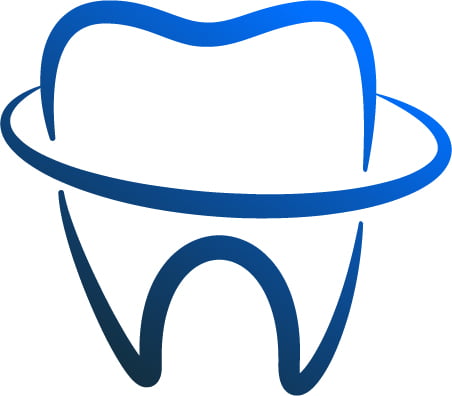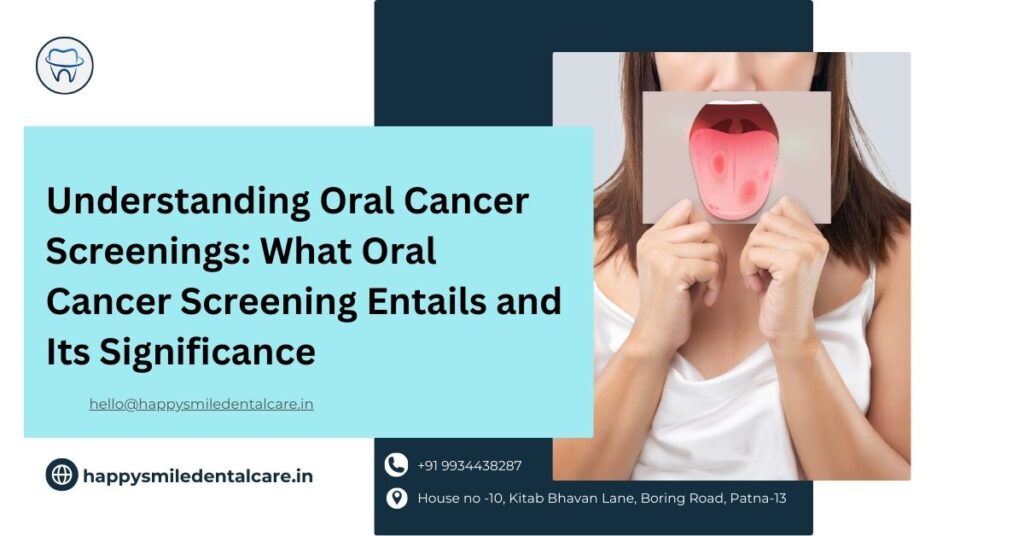Did you know that early detection of oral cancer can significantly increase survival rates? Learning about oral cancer screenings is the first step toward safeguarding your oral and overall health. Whether you’re a regular dental patient, someone curious about maintaining excellent health, or an advocate for cancer awareness, understanding how oral cancer screenings work and why they matter is crucial.
Oral cancer is an often-overlooked condition that can have life-altering consequences if not caught early. This blog will take you through everything you need to know, including what oral cancer is, why screenings are important, the screening process, and how regular check-ups at Happy Smile Dental Care can help you be proactive.
What is Oral Cancer?
Oral cancer refers to cancerous growths in various areas of your mouth and surrounding structures. These include the lips, tongue, cheeks, the floor of the mouth, hard and soft palates, sinuses, and throat. Oral cancer can develop from abnormal tissue growth, which may spread if not identified and treated promptly.
Statistics on Oral Cancer
According to recent statistics, about 54,000 people in the United States are diagnosed with oral or oropharyngeal cancer annually, leading to approximately 11,000 deaths each year. The survival rate for oral cancer significantly improves when it is caught in its early stages, emphasizing the role of regular screenings in saving lives. Recent statistics.
The Importance of Oral Cancer Screenings
Regular oral cancer screenings play an essential role in prevention, early detection, and improving treatment outcomes. Here’s why they matter:
1. Early Detection Saves Lives
Oral cancer detected in its early stages often has a 5-year survival rate of up to 85%. Screenings allow healthcare professionals to identify abnormal tissue, sores, or suspicious growths before they develop into more severe conditions, enabling early intervention for better results.
2. Common Risk Factors
Understanding your risk factors is vital. Some of the most common include:
- Tobacco Use: Smoking or chewing tobacco significantly increases the likelihood of oral cancer.
- Alcohol Consumption: Excessive alcohol use multiplies the risk, particularly when combined with tobacco.
- HPV Infection: The human papillomavirus is linked to certain types of oral cancers.
- Sun Exposure: Excessive UV exposure can lead to cancer of the lips.
Other factors may include a poor diet, a weak immune system, or a family history of cancer. Reviewing these with your dentist is critical to understanding your individual risk.
3. Symptoms to Watch For
Some symptoms of oral cancer to monitor include:
- Persistent sores in your mouth or on your lips that do not heal.
- Lumps or thickened tissue in your mouth or neck.
- Difficulty swallowing or chronic sore throat.
- Unexplained bleeding.
- Numbness or pain in the mouth or tongue.
If you experience any of these symptoms, schedule a dental check-up immediately.
What to Expect During an Oral Cancer Screening
Being proactive about your health can seem intimidating. However, knowing what to expect during an oral cancer screening makes the process straightforward and stress-free.
Preparing for the Screening
Before your appointment:
- Discuss your medical history and mention any current risk factors (e.g., smoking, alcohol use, family history of cancer).
- Avoid eating just before the visit, as residue may interfere with the screening process.
The Screening Process
A dental professional will conduct a thorough examination during your screening. Here’s what typically happens step-by-step:
Visual Examination: The dentist will carefully inspect your lips, tongue, gums, cheeks, and throat. They will also assess the roof and floor of your mouth for abnormalities such as red or white patches, sores, or swelling.
Lymph Node Check:
Palpation of the lymph nodes in your neck helps identify unusual lumps or changes, which can indicate underlying issues.
Adjunctive Tools: Depending on your risk level, advanced tools like the VELscope may be used. This fluorescence-based device helps dentists detect abnormalities not visible to the naked eye.
Duration and Frequency
The good news—an oral cancer screening typically takes just 5 to 10 minutes and can conveniently be performed during your routine dental check-up. Dentists generally recommend screenings at least once a year, but individuals with higher risks may require more frequent check-ups.
Follow-Up After Screening
Once you’ve completed your screening, here’s what comes next:
Understanding the Results
If everything appears normal, no additional steps are required until your next scheduled check-up. However, if your dentist detects potential abnormalities, they’ll walk you through a clear action plan. This may include further testing, imaging, or a biopsy to determine whether the tissue is cancerous.
Next Steps and Potential Treatments
For those diagnosed with oral cancer, various treatment options are available. Early detection improves the success rate of treatments such as surgery, radiation, or chemotherapy. The most important step is staying proactive and attending regular screenings to catch issues before they escalate.
The Role of Happy Smile Dental Care in Oral Cancer Screenings
At Happy Smile Dental Care, we prioritize patient-centered care using advanced technology and expertise to ensure the most effective screenings possible. Our personalized approach means we take your unique risk factors into account to provide tailored recommendations and preventive care plans.
Why Choose Us?
- State-of-the-art Technology: We utilize tools like VELscope to ensure even the smallest abnormalities are detected early.
- Expert Team: Our dentists are trained to provide thorough screenings and compassionate care.
- Community Focus: Beyond screenings, we actively promote oral health awareness to empower our patients in maintaining their overall well-being.
Make Regular Screenings a Priority Today
Taking charge of your health is easier than you think. Regular oral cancer screenings are essential not only for early detection but also for peace of mind. Remember, oral health is an integral part of overall well-being.
Stay proactive—schedule your screening today. At Happy Smile Dental Care, we are here to support you every step of the way. Book your appointment now and take the first step toward a healthier future.
Conclusion
Your health matters, and early detection can make all the difference. At Happy Smile Dental Care, we are committed to providing the highest quality care to safeguard your oral and overall health. Don’t wait until it’s too late—regular screenings are a simple yet vital step toward prevention and early diagnosis. Trust our experienced team and advanced technology to give you the care you deserve. Take the initiative today and prioritize your well-being with confidence.

